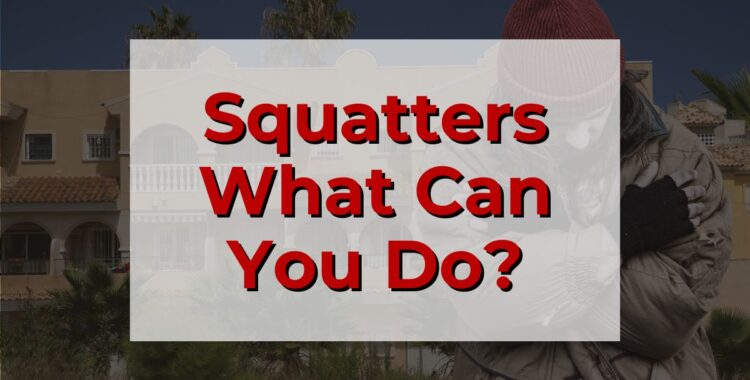The Challenge of Dealing with Squatters
Today, we are addressing a pressing issue that many property owners in Spain are facing—the challenge of dealing with squatters, commonly referred to as ‘okupas.’
Understanding Squatting in Spain
The phenomenon of squatting has garnered significant media attention, especially given the high demand and low supply in Spain’s rental markets. While some reports, particularly from the right-wing media, may exaggerate the issue, the fact remains that squatting is a concern for landlords nationwide. A 2023 study by the Institut Cerdà and the Platform of People Affected by Mortgages (PAH) estimates that there are about 100,000 occupied homes across the country. Although this represents less than 0.4% of the over 25 million properties in Spain, the impact on affected landlords can be profound.
Legal Challenges and Property Rights
Recent incidents across Spain, including arrests in Tenerife, Mallorca, and Barcelona, have highlighted the complexities surrounding property rights and eviction processes. These cases often involve property owners attempting to evict tenants or squatters without due process, sometimes resulting in legal consequences for the owners themselves.
Spanish law differentiates between ‘usurpación’ (misappropriation) and ‘allanamiento de morada’ (breaking and entering), with legal proceedings influenced by whether a property is considered inhabited. Fortunately, both primary and secondary homes, provided they are furnished and have basic utilities like water and electricity, are protected under this definition.
The Constitutional Right to Housing
Spain’s constitution safeguards the right to housing, ensuring that evictions adhere to established legal procedures to respect the rights of all parties, including squatters. Eviction must be processed through the courts, and any attempt to forcibly evict occupants without legal approval could be deemed illegal eviction or trespassing.
What Landlords Cannot Do
Direct actions against squatters, such as using violence, intimidation, or even cutting off utilities, can lead to charges of coercion or worse. Changing locks or making threats could also result in serious legal repercussions. Landlords are advised to pursue formal legal channels when attempting to reclaim their property, a process that can typically extend over several years.
Crucial Initial Actions
The first 48 hours after a property is occupied are critical. If squatters are reported within this period, the police can act without a warrant. However, if this window is missed, and the squatters change the locks or establish themselves, a more prolonged legal process is required, which could include obtaining a court warrant for eviction.
In conclusion, while the presence of squatters in one’s property is undoubtedly challenging, the legal framework in Spain requires a measured, procedural approach to resolve such situations.
HERE is the National Police webpage ‘Ocupaciones ilegales’











